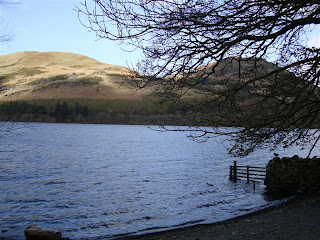 Meet MorteLà, the king of the street sellers. Ask for anything and he will find it for you. Cigarette lighters, bags, hats, tissues, watches, leather belts, jewellery - and so on. There are now a lot of street-sellers here, ready to descend like hawks on their tourist prey, keeping one eye open for the police because, of course, they don’t have licences. Everything they sell starts at 25 euros and it’s up to you to beat them down to the baseline price in a display of street theatre that is sometimes excruciating and often hilarious
Meet MorteLà, the king of the street sellers. Ask for anything and he will find it for you. Cigarette lighters, bags, hats, tissues, watches, leather belts, jewellery - and so on. There are now a lot of street-sellers here, ready to descend like hawks on their tourist prey, keeping one eye open for the police because, of course, they don’t have licences. Everything they sell starts at 25 euros and it’s up to you to beat them down to the baseline price in a display of street theatre that is sometimes excruciating and often hilariousMost of the foreign residents here buy from MorteLà. He is from French Senegal and speaks fluent English, French and Italian. He’s extremely intelligent and very good company. Like many of the others he came here on the promise of a proper job and money to send back to his family to give them a better life. But when he arrived there was no job, only a kind of modern slavery selling things for gang masters who take the money and pay a pittance to the sellers. Because MorteLà has no papers he can’t go anywhere else or get a better job. And he doesn’t earn enough money to buy his fare back to Senegal where he has a wife and 3 children.
One of the
 others we’ve spoken to is in a similar situation. He was a law student in Denmark and came to Italy with his Danish girlfriend who had a job here. The relationship foundered, his Danish visa had expired, and he is now selling on the street like MorteLà. Tough laws passed by the Berlusconi administration mean that they can be fined thousands of euros and put in jail for six months just for being here. Fortunately the police don't seem to be able to enforce them for the 600,000 illegal immigrants estimated to be in Italy.
others we’ve spoken to is in a similar situation. He was a law student in Denmark and came to Italy with his Danish girlfriend who had a job here. The relationship foundered, his Danish visa had expired, and he is now selling on the street like MorteLà. Tough laws passed by the Berlusconi administration mean that they can be fined thousands of euros and put in jail for six months just for being here. Fortunately the police don't seem to be able to enforce them for the 600,000 illegal immigrants estimated to be in Italy.Among them are tens of thousands of Albanians expelled from states in the former Yugoslavia and deprived of citizenship. Some of them had lived there for generations but they aren’t allowed back. Without passports and visas they c
 an’t go anywhere else either. In every country across Europe it seems there are hordes of stateless, paperless people trapped in a kind of immigrant No-man’s Land, permanently in transit, with no legal means of subsistence and no rights to state welfare.
an’t go anywhere else either. In every country across Europe it seems there are hordes of stateless, paperless people trapped in a kind of immigrant No-man’s Land, permanently in transit, with no legal means of subsistence and no rights to state welfare.With Europe in financial chaos, it can only get worse, particularly as extreme right wing parties use them as fodder for their manifestos. The rise of the right in Italy and elsewhere is frightening - not that it's ever gone away. One of the parties, the Azione Sociale, is led by Mussolini's granddaughter. Perhaps because of this, most other political parties are failing to confront the problem, but sooner or later it will have to be addressed - humanely and sensibly. These people aren’t criminals, they are casualties of conflict and economic collapse, as well as the fraud and greed of the people who exploit them.
 The residents of Pietrasanta often buy MorteLà a drink (non alcoholic as he is a strict Muslim) and chat before buying some token item (Neil doesn’t smoke but he’s got an amazing collection of cigarette lighters!). The bar owners give MorteLà any food that is over at the end of the evening so that he is at least well-fed, but it’s no way for an intelligent, hard-working person to live.
The residents of Pietrasanta often buy MorteLà a drink (non alcoholic as he is a strict Muslim) and chat before buying some token item (Neil doesn’t smoke but he’s got an amazing collection of cigarette lighters!). The bar owners give MorteLà any food that is over at the end of the evening so that he is at least well-fed, but it’s no way for an intelligent, hard-working person to live. 




.JPG)

.jpg)


.JPG)
